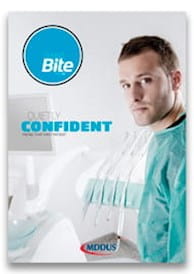EACH DENTIST must certainly ensure that he acts ethically, that his clinical knowledge is up-to-date (through continuing professional development), that his communication skills are getting the job done, and that he works well with the rest of the dental team.
But he must also be ready to raise concerns about other people’s standards and behaviour. The dentist who fails to voice concerns when it’s necessary is acting unprofessionally.
The first principle mentioned in the General Dental Council’s Standards for Dental Professionals document states that dentists must “put patients’ interests first and act to protect them”. This principle generates a duty to protect patients from the actions of both yourself and others.
The GDC states in the Principles of Raising Concerns guidance that: “If you believe that patients might be at risk because of your health, behaviour or professional performance, or that of a colleague, or because of any aspect of the clinical environment, you should take action.” Of course, if you have concerns about yourself, you may be able to deal with these without involving others, but the reflective professional will know when to seek help.
In practice, the GDC’s requirements mean that you may have to raise concerns about colleagues who may have fallen below the necessary standard on faulty procedures. In fact, most of the other principles are also relevant to raising concerns.
Raising concerns about a colleague might be necessary to protect patients’ dignity (principle 2) or to stop breaches of confidentiality (principle 3), and constructive criticism is part of effective teamworking (principle 4). Furthermore, principle 6 mandates trustworthiness, and a dentist who is not prepared to raise concerns is not trustworthy.
The GDC makes it very clear that protecting patients is more important than any personal or professional loyalties that the dentist might have. While it might be awkward to raise concerns, it is an ethical and professional imperative to do so.
You might also be worried that reporting issues could adversely affect your employment or feedback while on training; while these are obviously important considerations, there are protections in place for those who raise concerns, and patients’ interests are of paramount importance. The Public Interest Disclosure Act 1998 protects all dental professionals who raise concerns in good faith – proof that one’s concerns are justified is not necessary.
As well as the professional obligations incurred by the GDC, raising concerns is also important from the perspective of protecting against litigation. If a dentist owns a practice, he could be liable for negligence even if he himself is not clinically at fault, because of the legal concept of vicarious liability. This means that whoever is in charge of a practice bears some of the responsibility for anything going wrong on his watch. In essence, the argument is that he should have raised concerns with his team about any failings, or had procedures in place to detect them.
So what do you look for? If a colleague is clearly undertaking procedures that are beyond their level of competence, you should act, either by sensitively raising the subject with him or by taking it to his line manager if the first approach is unsuccessful or inappropriate. The same applies if a colleague is speaking or acting inappropriately with patients, or is gossiping about confidential patient details. If infection control procedures in your place of work are inadequate, you should raise this issue with the person in charge.
How to go about raising these concerns with colleagues really depends on the context, but if the matter is very sensitive, it may be wise to discuss it with MDDUS before tackling the problem. If your concern relates to the line manager, you may have to contact your local NHS board. If local arrangements do not deal with the problem, it may be necessary to contact the GDC directly.
If you find yourself in a situation where you are responsible for other staff, you should also encourage them to raise concerns themselves. It can actually be a useful tool for improving your own professional practice if people raise concerns with you, because they might have spotted something about your practice that you weren’t aware of. Although people often refer to raising concerns as “whistleblowing”, this latter term implies public disclosure of deeply unethical practices; if dentists adopt a healthy attitude of raising concerns about things before they go too far, such extreme whistleblowing will not be necessary.
Dr David Shaw is a Lecturer in Ethics in Relation to Dentistry at the University of Glasgow’s dental school
This page was correct at the time of publication. Any guidance is intended as general guidance for members only. If you are a member and need specific advice relating to your own circumstances, please contact one of our advisers.
Read more from this issue of Insight Primary

Save this article
Save this article to a list of favourite articles which members can access in their account.
Save to library